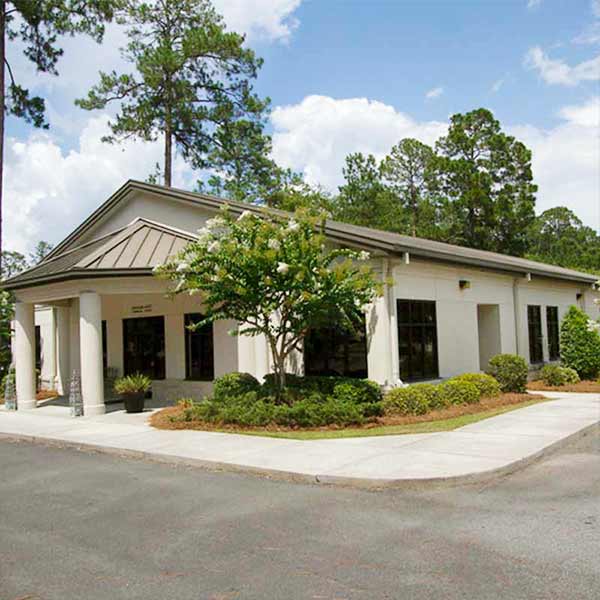What is Teen Benzo Addiction?
Learn More About Teen Benzo Addiction
While beneficial for alleviating the symptoms of anxiety disorders, seizure disorders, and sleep disorders, benzodiazepines are dangerous medications to misuse. When taken for recreational purposes, these prescription medications, which are also known as benzos, can bring about pleasurable feelings of relaxation that are alluring to many. Teens, like adults, unfortunately abuse these sort of substances and often do so at the same time as other drugs or alcohol.
If your child has developed a benzodiazepine addiction, know that both you and your teen can be helped. As your child’s greatest ally and advocate, you can help him or her access the services that can free him or her from the grips of benzodiazepine addiction once and for all. If you don’t, however, your teen is vulnerable to developing physical health problems including poor lung functioning and mental health issues that can be especially overwhelming. But when you’re ready to assist your teen in leaving the misuse of benzos in the past, you can help him or her access effective and comprehensive services that include detox and other therapeutic supports so that he or she can successfully avoid the harm of a long-standing benzodiazepine addiction problem.
Statistics
Statistics of Teen Benzo Addiction
Benzodiazepines are very common substances of abuse because of their widespread availability. Since these medications can treat several conditions, it’s not surprising that teens are able to get them. Furthermore, research shows that benzos are frequently misused at the same time as other drugs, as nearly 80% of young people who seek drug treatment have reported that they abuse benzos at the same time as other drugs and/or alcohol. Xanax is said to be the most popular benzo that is abused among adolescents, and that as many as 35% of young people who need emergency treatment due to substance abuse have consumed benzos alone or with other substances.
Causes and Risks
Causes and Risk Factors of Teen Benzo Addiction
It can be hard to wrap your head around the fact that your teen may have a problem with the abuse of benzodiazepines. You may also be curious as to how this sort of issue has come to impact your child’s life. To get the answers you need, please consider the following research-backed concepts that could explain why and how your child now struggles with benzo addiction:
Genetic: A person’s genetic makeup can be a powerful influence when it comes to the abuse of benzos or other drugs. Experts have conducted a great deal of research and discovered that certain genes can make people more vulnerable to developing an addiction when compared to others who don’t have this type of background. Therefore, if your child’s family has a history of addiction, it could be part of the reason why he or she is struggling with benzo addiction.
Environmental: It’s very possible that your teen’s benzo addiction problem was influenced by certain environmental factors. For example, if your child has friends or family members who abuse drugs, he or she may have made the transition to substance abuse because of the example that was set around him or her. Additionally, if your child is able to easily get these substances, he or she may be more inclined to misuse them if he or she is curious. Furthermore, if your child lacks healthy coping skills, doesn’t feel as though he or she has substantial support from loved ones and friends, or if he or she has endured some sort of trauma, then the abuse of benzodiazepines is far more likely.
Risk Factors:
- Suffering from a mental or physical health condition that necessitates a benzodiazepine
- Having antisocial behavior
- Having an impulsive personality
- Family history of substance abuse and addiction
- Being around other people who abuse drugs and/or alcohol
- Being able to easily get benzodiazepine substances
Signs and Symptoms
Signs and Symptoms of Teen Benzo Addiction
You may be unsure of the warning signs that can suggest your teen is battling a benzo addiction problem. You can ask him or her, but he or she may not as honest as you would hope. Therefore, take note of the following signs and symptoms that could infer your teen is abusing benzos, and then seek professional treatment for him or her:
Behavioral symptoms:
- Slurred speech
- Neglecting responsibilities at home
- Repeated absences from school
- Frequent tardiness or ditching school
- Academic problems
- Stealing other people’s benzodiazepines
- Limiting contact with friends and family members
- Disinhibited behavior
- No longer participating in enjoyable activities
Physical symptoms:
- Poor coordination
- Drowsiness
- Rapid, involuntary eye movement
Cognitive symptoms:
- Memory problems
- Poor attention
- Insensibility
- Cravings for more benzos
- Poor decision-making
Psychosocial symptoms:
- Euphoria
- Anxiety
- Depression
- Emotional outbursts
Effects
Effects of Teen Benzo Addiction
You want what’s best for your teen, and you will likely do whatever it takes to make sure that his or her present and future is as happy, healthy, and prosperous as you can. However, if your child continues to abuse benzodiazepines, the following adverse effects could occur:
- Increased family conflict
- Overdose
- Polysubstance abuse
- Academic failure
- Poor performance at school
- Disciplinary action at school
- Interaction with the legal system
- Onset or worsening of mental health disorder symptoms
- Respiratory distress
- Hypotension
- Overall decline in physical health
- Problems with cognition
- Disturbed peer relationships
Co-Occurring Disorders
Co-Occurring Disorders & the Complexity of Teen Benzo Addiction
People of all ages who struggle with the abuse of benzos are frequently battling other mental health or substance use concerns at the same time. This notion can also apply to your teen, which is why it’s so crucial for you to assist him or her in getting professional help to mitigate his or her addiction, as well as to assess for the possibility that the following co-occurring disorders exist:
- Antisocial personality disorder
- Alcohol use disorder
- Bipolar disorder
- Tobacco use disorder
- Anxiety disorders
- Other substance use disorders
- Depressive disorders
Withdrawal & Overdose
Effects of Withdrawal and Overdose of Teen Benzo Addiction
Effects of benzodiazepine withdrawal: A telltale sign that child may be grappling with an addiction to benzos is the occurrence of withdrawal when he or she is not under the influence of these types of medications. If you notice the following happening to your child, he or she may be experiencing benzodiazepine withdrawal and could benefit greatly from treatment:
- Insomnia
- Grand mal seizures
- Nausea
- Hand tremors
- Increased pulse rate
- Onset of hallucinations
- Vomiting
- Psychomotor agitation
- Sweating
- Anxiety
Effects of benzodiazepine overdose: It’s important for you to know if and when your child is suffering from an overdose after taking too much of a substance containing benzodiazepines. If you’re not prepared to act fast, your teen may suffer from permanent effects or even lose his or her life as a result. Therefore, if any of the following symptoms happen in your presence, it is best to call for emergency medical help as soon as possible.
- Respiratory distress
- Loss of coordination
- Muscle weakness
- Extreme dizziness
- Blurred vision
- Sedation








